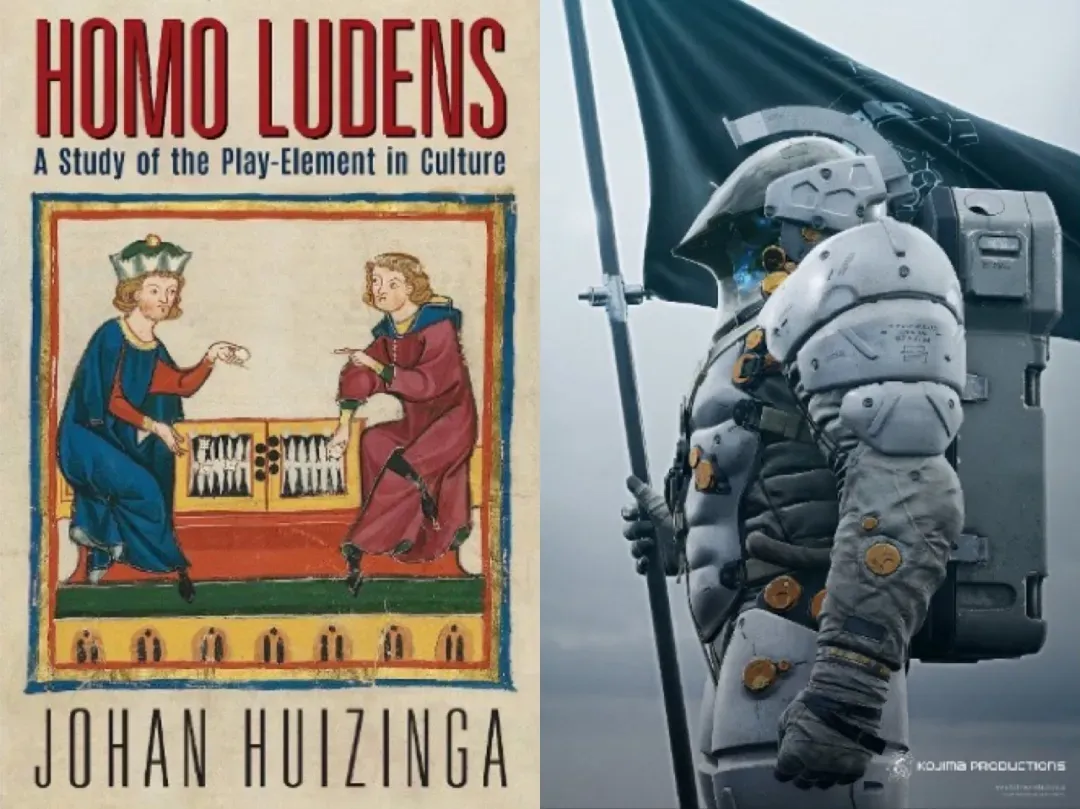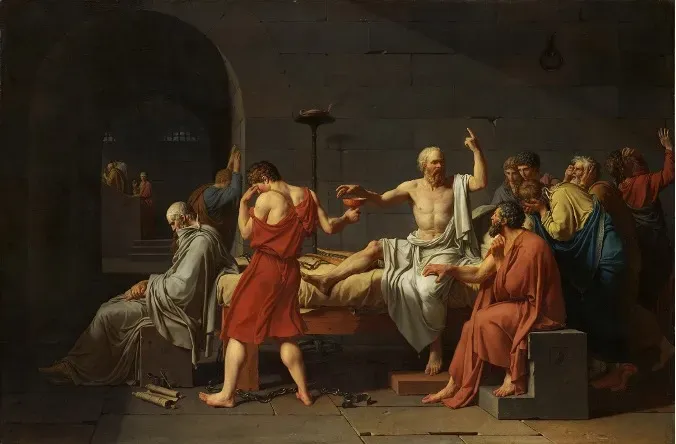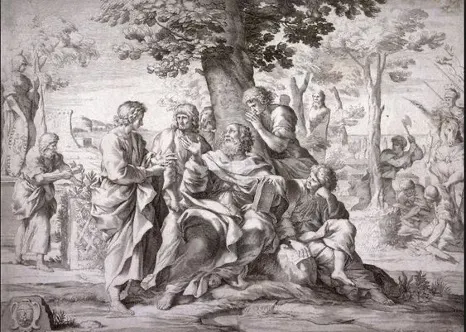
围炉,大学生思想、经历的交流平台。以对话为载体,发现身边有意思的世界。 香港大学|上海纽约大学|复旦大学|香港城市大学|香港中文大学|北京大学|中国人民大学 | 清华大学 | JointU综合联校 | 哥伦比亚大学
Dialogue with Fan Ziyi: Do game producers dream of "electronic heroin"? (2) | Around the Furnace · CUHK
2
Philosophical Observations on the Nature of Video Games
Tong|Why did you choose to work in the video game production industry?
Fan|Actually, getting into the game production industry is quite a coincidence. At the beginning, I planned to continue my studies, because I studied humanities-related things during the university, but at that time there were some chaos in the academic world, which made me feel that the atmosphere of the academic world was not as good as I thought, so academic The road did not go on. When I went back to my country to look for a job, because all my knowledge was academic and I didn’t have any career goals or work experience, I was looking for a job at random. Later, a game company just threw an olive branch to me, and I entered this industry. When I first entered the industry, I was responsible for scriptwriting work such as writing plots and setting the world view. Because I am a long-term gamer, my personal interest is also very strong, and I have been insisting on doing it until now.
Tong|What do you think is the essence of video games?
Fan | To answer this question, I would like to start with a book "Players"[1] (Homo Ludens) by Dutch scholar Johan Huizinga. This book, written around 1930, is a study of pre-videogames. It's not about video games, it's about "playing" in general. Specifically, it examines the role of "playing" in human cultural life, and is a cultural anthropology study.
The point made by this book is that "playing" is a very legitimate behavior in people's cultural life. After people meet some basic survival needs, people will inevitably do some "playing" things. In addition, there are other biological studies to support this view, demonstrating that the behavior of "playing" is quite helpful for the development of the brain and the evolution of human intelligence. So the act of "playing" is natural in every sense; in other words, "playing" is an intrinsic act.
Let's bring this topic back to video games. Video games are actually a form of play in essence, but the distribution channel of its content is through the Internet, and it has a stronger interactive form and experience. So in my opinion, video games are just a carrier that supports human "playing" behavior, but contemporary computer and Internet technology has allowed it to develop into its current form.

Tong | You have studied philosophy and theology in domestic and overseas universities for your undergraduate and master's degrees. How do you view the relationship between philosophy, God, and video games?
Fan | The relationship between philosophy and video games I have already mentioned a few things when I talked about the book "The Game Man". But here are some additions. In the 1970s there was a philosophy book called Grasshopper [2]. The two books, "The Grasshopper" and "The Gamer," both explore what games are from a philosophical and academic perspective.
The Grasshopper is a Platonic dialogue that also references the famous Aesop's fable, The Ant and the Grasshopper, as a backdrop. The storyline is simple: in the fall, the ants are preparing things for the winter, and the grasshoppers are playing; in the winter, the ants survive and the grasshoppers freeze to death. In Aesop's Fables, the author's message to readers is "We want to live like ants". But in The Grasshopper, it instead raises the question: Can we live like grasshoppers? The authors attribute grasshopper behavior to a concept called "lusory attitude", which can be translated as "play spirit". The word "lusory" is also the Latin root of the word "Ludens" (play) in Homo Ludens earlier.
The author made a series of philosophical investigations. He proposed that no matter what a person does, even if it is the heaviest labor work purely for survival, this person will at least have a little "play" attitude when doing this. One of them; even if the pleasure of the thing is minimal, one can always try to have a little bit of it. Although this is just a philosophical investigation and does not have much social value, at least I am personally very pleased with this view. This is the view of some academics.
As for what I personally think is the relationship between philosophy and video games, I actually thought about this when I was studying, and I wrote an article to discuss it. This article is very old, but I can still support the point of view in retrospect. The title of the article is "Socrates and the World of Warcraft".
Socrates is a man expelled from the city-state, and video games are in many senses an activity that is "expelled" from contemporary society. I was trying to write this article to compare their similarities. From the conclusion, the "dislikes" of the two are similar: they are "disorder" things for those in power no matter what era - this is the same as what we talked about "addiction" before. The problem of "disorder" mentioned at the time is the same. Someone defines what's normal and what's "order," and Foss has a vision for something and drives out what doesn't fit their vision. Socrates is accused of "disrespecting the god of the city-state" and "corrupting the youth", and the crime of video games being expelled from modern society is also "corrupting the youth". It is not difficult to see the similarity.

As for the point of "disrespecting the gods of the city-state", we need to expand on it. When we deconstruct and reconstruct this "guilt", we have the question: what should modern people be in awe of? When I was studying theology in my master's degree, I also discussed similar issues with my classmates, but I didn't have their religious awareness in most cases. What they care more about is, as a devout Christian living in the 21st century, when everyone believes that science can bring us such great help, how should I view my beliefs, what should I do? How to believe in God? This question contains ethical and ontological implications.
Back to the question of "what modern people should be in awe of". It's not just a Christian problem, it's a problem for everyone in modern society. But when this question has not received an ontological and ethical answer, there can only be a channel of power to make everyone "awe" and obey the order. I have a person in power, I have an ideology of domination, and then when I don't think your activities fit my ideology, I will expel you. In The Republic, Socrates himself said that he wanted to expel the poet, right? After all, there is a strong political dimension behind this issue.
Therefore, the discussion and definition of Socrates and video games by the two time-space societies is no longer purely speculative or purely conceptual. It's not a question that Foss can conclude through normal conversation and ethics about whether or not this person or thing is good; there's a lot of power relations involved.
Tong|Most people think that philosophy and theology are relatively small subjects. Did the experience of studying philosophy and theology have any influence on your game making?
Fan | The influence is still quite big, there are probably two aspects. The first is that after receiving relatively solid academic training in the humanities, I was trained to have a relatively strong philology ability, and I knew that there were many things I could turn to for the wisdom of my predecessors. When I encounter something I don’t understand, I can go to the information. I know where to look, especially because the index relationship between academic books will be clearly listed, so it is easy for me to find what I want to read according to this context. , and finally I can progress faster. After entering the society, I feel more and more that most of the problems in life are open-book questions, and the answers can be found. So at work, I encounter some things that are beyond my current knowledge and ability. Through correct study, I can also give my "answers" very well. However, this ability is more or less possessed by students of the humanities, and is not a characteristic of philosophy.
The second point does come from training in the discipline of philosophy. I think the really difficult problem is always the problem of value judgment, and the study of philosophy is a process in which I constantly train myself to make appropriate and perfect value judgments. Take the example of Socrates just mentioned, the masses made their value judgments, and then decided their actions according to the results of the value judgments, and finally they chose to kill Socrates. From the perspective of future generations, this is probably a bad value judgment, after all, they executed a bit of a wise man who we think is very great. Therefore, the ability to make good value judgments is very important.
Value judgments also exist in my work. In the process of my contact with players, my personal attitude is relatively low, and I think content creators in modern society need to have such self-consciousness. Content creators like me are only a part of the complete social relationship of the production and dissemination of works, and we have to play the role of our part. Looking at content creation from this perspective, our role weakens our rights as creators, but at the same time it also increases our responsibility. The most important responsibility on us is to understand that we can deliver for everyone. What should be communicated to everyone.
In ancient Greece, one of the things Socrates liked to do was to chat with someone he met on the road. He felt that by philosophizing with the Athenians, he could help the Athenians obtain a higher quality of spiritual life. At that time, Socrates didn't have to think about what point of view he was going to output. We today call his form of dialogue "Socratic Dialectic"; his influence on the city-state was limited to a few of his dialogues. object, and because it is a random conversation on the street, the degree of effective output is also limited. In general, if Socrates is also a content creator, his actions have less effect on the overall environment.

But now the mechanism of the Internet is a mechanism that polarizes things; it amplifies some things that are already strong, and then some things that are already weak get weaker and weaker, which is a positive feedback loop as a whole. So, when I was involved in the Internet communication mechanism, I found that my voice was not limited to a small area, but was amplified by many other mechanisms. When my voice is heard by more people, I will definitely have more social responsibilities. Then comes the really difficult question at this point: what can I say and what should I say. This is a very difficult question, and I think it may take everyone a long life to answer it.
Tong|If you have children in the future, how would you guide them to contact video games?
Fan | Of course I want games to be a part of TA's growth. Because games are really powerful as a communication medium, many concepts and wisdom can be conveyed through games. However, there are still powerful things in many other mediums, such as the essence of some literary works that may never be conveyed through games. So, I hope that TA can benefit from games, but I also hope that TA's vision is not limited to the single medium of games. I think the best way is for me to give my children a sufficiently open environment so that they can get in touch with what they want to touch, and try all kinds of possibilities, and the final choice is for them to do.
Tong|Thank you for participating in this interview.
Fan | Okay, thank you too.

Note: [1] Johan H. Huizinga. Homo Ludens: a Study of the Play-Element in Culture. [2] Bernard Suits. The Grasshopper.
Text | Tong Junbo
Figure | From the Internet
WeChat editor | Li Jingxuan
matters Editor | Marks
Audit | Ronnie
Around the Fire (ID:weilu_flame)

The pictures in the text are not used for other purposes without consent
You are welcome to comment below the article to exchange discussions with the Ios team and other readers
If you want to know about the fireplace and read more articles, please pay attention to this official account and click the corresponding menu column on the official account page


Like my work?
Don't forget to support or like, so I know you are with me..
Comment…